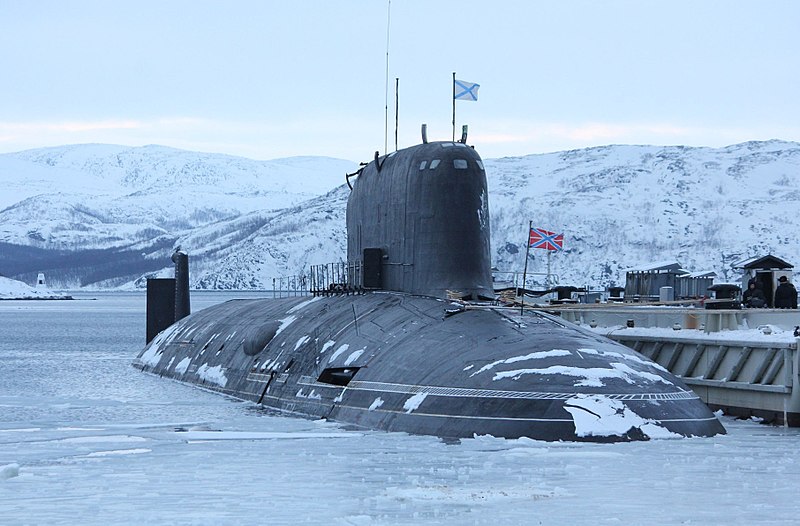A publicly traded US tech firm reportedly continued to do business with Russian arms manufacturers that were sanctioned following Russia’s annexation of Crimea in 2014.
Biggest Upgrade In History? Russia To Reactivate 800 Cold War-Era T-62 Tanks Amid Depleting Arsenal
NATO’s Eurofighter Typhoons Challenging Russian Fighters; Scrambled 16 Times To Intercept RuAF Jets
Extreme Networks sold its products to MMZ Avangard, the maker of Russian S-400 missiles, for four years between 2017 to 2021, as per the latest report by Reuters news agency.
The products included computer networking equipment for MMZ Avangard’s office IT systems. The Russian military has allegedly been using the missiles made by MMZ Avangard against Ukraine.
According to Ukrainian authorities, MMZ Avangard missiles killed at least thirty civilians in an attack against a convoy in the city of Zaporizhzhia in September.
‘Unsanctioned’ Business With Russia
MMZ Avangard acquired over half a million dollars worth of equipment from Extreme between 2017 and 2021, which included high-speed switches, an essential building block of corporate IT networks, and software, reported Reuters.
As per the business records reviewed by Reuters, the purchase deals went through a seemingly innocuous corporation called OOO DEMZ, based in Dmitrov, a city located roughly 80 kilometers north of Moscow.
“It was necessary to use a cover because the Russian company is blacklisted in the US,” one of the people familiar with the shipments told Reuters.
Disguised under cover of DEMZ, MMZ Avangard acquired products worth around $645,000 from Extreme between December 2017 and September 2021.
In its statement to Reuters, Extreme now believes that its equipment may have been acquired through a “front company.” The company also confirmed that the DEMZ account listed product purchases for approximately $645,000.
Apart from MMZ Avangard, Extreme is said to have sold its equipment to a significant Russian military shipbuilding company, United Shipbuilding Corporation, and a defense electronics manufacturer known as Concern Morinformsystem-Agat.
Like MMZ Avangard, United Shipbuilding has been listed as a “blocked” entity by the US Treasury since July 2014. The company has headquarters in St. Petersburg and operates several Russian shipyards, making everything from frigates to submarines to mine sweepers.

While Agat manufactures radar and other military electronics systems, the company relied on Extreme equipment for some of its systems used in the communication systems of Russian warships produced by United Shipbuilding.
Meanwhile, Extreme has denied having any records of selling products to United Shipbuilding or Agat.
The company also said it has a firm policy of not working with sanctioned entities but added that in some cases where the products are sold through what it referred to as ‘stocking’ distributors holding an inventory, the company may not always be notified of the end customer.
Extreme named RRC, a subsidiary of a Cyprus-based company BD Enterprise Networking, among such distributors, as complicit in the scheme to supply MMZ Avangard.
Extreme Networks
In addition to the Russian defense companies, Extreme Networks’ products are also used by Russia’s Ministry of Health, the federal pension fund, and Lomonosov Moscow State University.
Most importantly, even the US military and NASA use Extreme equipment, per the company’s contracting records.
One of the remarkable features of Extreme is that its products do not require service subscriptions and frequent software updates.
Extreme’s equipment is absolutely ‘autonomous,’ as it can be operated without a license or an internet connection. The Russian military companies or government agencies do not have to fear that their system will go dark because someone in the US decided to disconnect them.
Extreme said that the “autonomous model” is not unique to the company while acknowledging that it has become relatively rare.
Russia’s dependence on Western technology for its weapons systems is no secret, and the latest revelation about Extreme is just another example of that.
Russia lacks domestic production of networking equipment. Therefore, Russian companies, including those in the defense industry, must rely on foreign equipment to build computer networks required for modern-day business.
Russia Continues To Get Hi-End Tech
However, this also highlights the shortcomings in the ability of Western countries to prevent their high-end technologies from falling into the wrong hands through export bans and trade sanctions.
In April, EurAsian Times reported how even the companies from NATO member countries used the ‘Grandfather Clause’ to bypass the EU arms embargo on Moscow.
According to an EU report, at least ten NATO member states exported around €350 million ($378.6 million) in military hardware to Russia, out of which German and French companies accounted for 78% with €273 million ($295.4 million) worth of military export.
Despite an EU-wide embargo on arms supplies to Russia after the latter annexed Crimea in 2014, Germany and France delivered bombs, rockets, missiles, and guns to Moscow.
In addition, the French companies also delivered thermal imaging cameras and navigation systems for fighter aircraft, attack helicopters, and Russian tanks.
These member states took advantage of a loophole that allowed contracts signed before August 1, 2014, or subsequent contracts that would help close those agreements to continue.
- Contact the author at tanmaykadam700@gmail.com
- Follow EurAsian Times on Google News